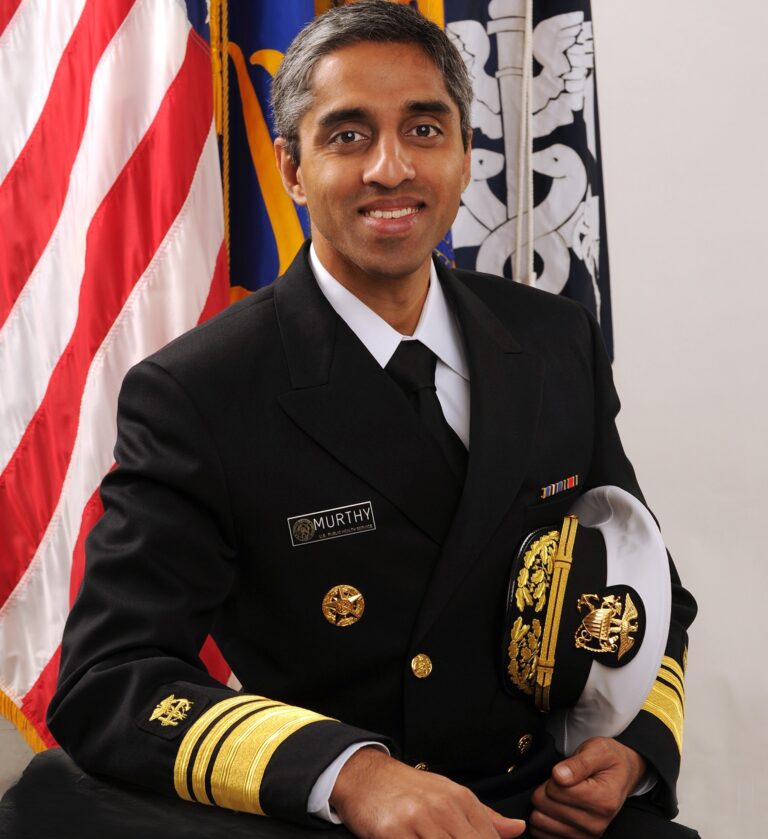“The nation” is not a large biological organism but is composed of a large number of individuals, all different and unique, each with their own preferences, values, and circumstances. Economics is a science that studies the social consequences of individual choices. Ultimately, all choices are individual, even the decisions made by politicians and bureaucrats. A political majority is made up of individuals. If someone were to be “the nation’s doctor,” one would expect him to be an expert in economics, to study the social consequences of the Second Amendment, the First Amendment, the Fourth Amendment, or one of these.
The Surgeon General of the United States is officially defined, presumably by law or regulation, as “the nation’s doctor.” His office is a strange creature (like his history also reveals):
As Vice Admiral of the US Public Health Service Commissioned Corps, the Surgeon General oversees the operations of the US Public Health Service Commissioned Corps (USPHS), an elite group of more than 6,000 uniformed officers working throughout the federal government whose mission is to protect, promote, and advance the health of our nation.
Like most public health bureaucrats, he and his office are not really good at economics. His latest “opinion” is titled Gun Violence: A Public Health Crisis in the United States. Although surgeons general have opinions on many topics and lifestyles, they have never discussed the social consequences of free speech or due process. (The current surgeon general, however, has published opinions on social networks And health misinformation.) His review of gun violence contains no mention of the word “economics” and appears to refer to only two limited economic studies. Could I have missed something in the report’s 110 footnotes (there is no separate bibliography)? It seems that the GP sees himself as the physician of a large organism of which ordinary individuals are the organs or cells.
Economics and other rational approaches to society have given the lie to the pre-scientific idea that society can be studied as a biological organism. Émile Faguet, the great French literary critic, historian of political ideas, essayist, and academician, was not an economist, but he knew enough to mock the kind of “zoological politics” implied by social organicism: “You think you are a man,” he wrote; “in fact, you are a foot”—”You think you’re a man; you’re a foot» (Liberalism, Paris, 1902/1903). My Independent review article “The impossibility of populism“illustrates the danger of this error.
Of course, we can hope that individuals will make informed choices about their trade-offs between risk and happiness, especially when children might be indirect victims. Minimal government intervention in the form of unbiased information, if possible, could probably be justified. But unbiased information and the protection of children are not the business of public health. An article in the current issue of The Economist“Transgender Medicine Research Has Been Manipulated”, examines an example of what public health activists generally mean by information and research.
What we call “public health” today was born at the beginning of the 20th century, a little earlier in Germany. It is not a scientific enterprise but an ideological and political movement. (I developed this idea in a Regulation article, “Public health dangers”, and an article from the Reason Foundation, “Public health models and related government interventions. ») During the Progressive Era, the public health movement and at least one general practitioner supported eugenics and compulsory sterilization. In an article on “UVA and the History of Race: Eugenics, the Racial Integrity Act, Health Disparities“, P. Preston Renolds, professor of medicine and nursing at the University of Virginia, mentions how the fifth surgeon general of the United States, Hugh Smith Cumming, with two assistant surgeons general,
Americans brought eugenic racism to the rural tobacco fields of Alabama. It was there that they implemented the infamous Tuskegee Syphilis Study, where nearly 400 black men were followed for 40 years in an effort to document how the disease manifested in untreated black individuals. The tragedy is that with the discovery of penicillin as a cure for syphilis after World War II, these men were never informed of their disease, nor were they given a cure.
In many ways, “public health” is the label for fashionable lifestyles encouraged, even coercively imposed, by government. Think about the decades-long persecution of smokers, which prohibits restaurants, bars and other private places from freely welcoming them. Public health is government coercion with a human face. It is a surreal experience to see the Director General of Public Health, dressed in his authoritarian vice-admiral uniform, giving his opinion on the life choices his national patients should make (see “Gun violence in the United States is a public health crisis, surgeon general warns“, the wall street journalJune 26, 2024).
******************************

The current surgeon general. By the United States Department of Health and Human Services – http://www.surgeongeneral.gov/images/vadm-murthy.jpghttp://www.surgeongeneral.gov/about/biographies/biosg.html, domain public, https://commons.wikimedia.org/w/index.php?curid=37966238


